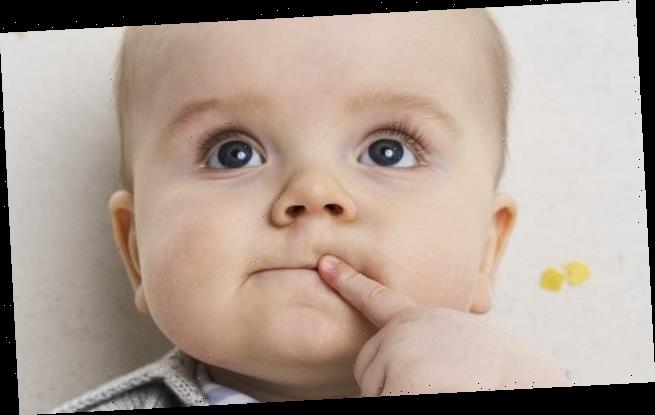How babies as young as 14 months old ‘can COUNT’: Toddlers can associate words with quantities years earlier than previously thought
- Toddlers who hear objects being counted can associate numbers and words
- However researchers say they do not appreciate full meaning until years later
- At the age of four, children begin to understand the cardinal principle
Children as young as 14 months have a sense of counting, even if they are years away from being able to say ‘one’, ‘two’ and ‘three’, scientists have said.
Researchers found that toddlers who hear objects being counted are able to associate the number words with the corresponding quantities, even though they will not understand the full meaning of these words until they are about four years old.
The team described their findings, published in the journal Developmental Science, as ‘surprising’ and said their results show that children recognise counting ‘years earlier than previously believed’.
Children as young as 14 months have a sense of counting, even if they are years away from being able to say ‘one’, ‘two’ and ‘three’, scientists have said
Senior study author Lisa Feigenson, a cognitive scientist at Johns Hopkins University in Maryland, said: ‘Research like ours shows that babies actually have a pretty sophisticated understanding of the world – they’re already trying to make sense of what adults around them are saying, and that includes this domain of counting and numbers.’
WISE BEYOND THEIR YEARS
The study is not the first to suggest that babies are wise beyond their years.
Previous research has shown that six-month-old babies are capable of telling the difference between friend and foe, suggesting we are born with a moral code.
While another study found that babies may come into the world with brains capable of daydreaming and introspection.
Studies also show that by the tender age of ten months, youngsters are aware of the ‘law of the jungle’ – that size brings with it power.
Previous research has shown that the process of counting begins at around two-and-a-half years old, when youngsters begin to recite the count list but do not yet know what the count words mean.
At about the age of four, children begin to understand the cardinal principle – which is a connection between numbers as words and a quantity of items.
The researchers recruited 80 toddlers, aged between 13 and 20 months, as part of the experimental study.
The team performed five tests, all of which involved hiding toys – either dogs or cars – inside an opaque box.
In some instances, the researchers counted each toy aloud before putting them into boxes, while in other scenarios they simply dropped the toys into the box one by one in full view of the toddlers.
The children tended to lose interest when the toys were not counted before being hidden.
But when the researchers counted the toys, the toddlers were better at remembering the number of toys and continued to look in the box to try to find them all.
Jenny Wang, a former graduate student at Johns Hopkins and one of the study authors, said: ‘These results were actually really surprising because all the prior research of the past decade has shown how difficult it is for children to master the meaning of count words.’
She added: ‘Our results are the first to show that very young infants have a sense that, when other people are counting, it is tied to the rough dimension of quantity in the world.’
WHAT IS THE CARDINAL PRINCIPLE?
The Cardinal Principle is a rule understood by all who can count.
When counting a number of objects the last number you say is the total number of items.
For example: If you were counting oranges one by one saying out loud, one, two, three, four, before running out of oranges, most people understand that as four was the last number you said that’s how many oranges you have.
This is the cardinal Principle, and although very simple for adult brains to comprehend it poses a challenge to infants learning to count.
Understanding this is fundamental in a child’s counting development.
At about the age of four, children begin to understand the cardinal principle.
A connection between the numbers and the words representing them must also be understood to count – but as the study finds this can appear much earlier in an infants life.
Source: Read Full Article

